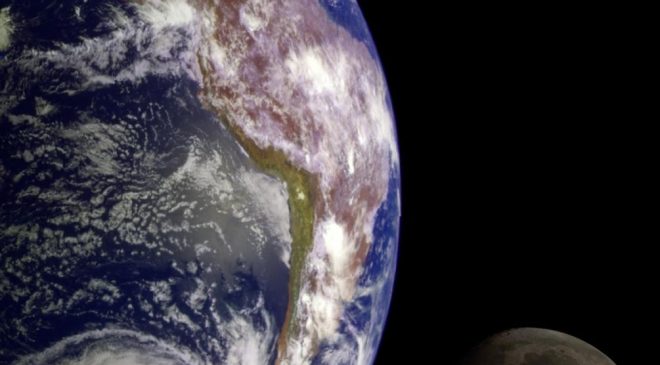
Manufacturing in space will be real and viable in another 10 years.
KPMG Australia has released a new report looking at the global space industry, which is expected to be worth US$600bn by 2030.
The report, 30 Voices on 2030 Future of Space shows Australia’s 14,000 strong space workforce has been growing at 10.9 per cent annually over the past five years.
By 2030 manufacturing in space will be real and viable and there will be assets such as mines operated remotely on the Moon.
Rather than space programs being purely government-led, there will be more and more partnerships between the public and private sectors, with government as customer of civil space business, said Mike Kalms, partner-in-charge, space and defence industry at KPMG Australia.
“Today’s small space start-ups will be the sector leaders in 2030,” he said. “Already many multi-national businesses are investing in the space sector and understanding how it can add value to their business on Earth.
According to Kalms by 2030 KPMG expects many businesses across all industries to have dedicated space teams and resources.
“The majority of space companies will be valued in the billions of dollars and operate across multiple countries,” he said. “Global levels of cooperation will help enhance economic and political ties between nation states.”
While people won’t be living on the Moon and space travel will remain costly — there will still be an increased human presence in space.
“This will enable more research, such as medical research in zero gravity,” said Kalms. “The report also predicts that the human genome may be altered to further support humanity’s sustained exploration of space.”
KPMG’s report also shows at the same time there will be challenges in terms of sustainability, with a moratorium on space debris and a recognition of the importance of the ecology of space for future generations.
“Businesses are already putting sustainability at the forefront of what they do on Earth. We anticipate the same will be applied to space activities in the years ahead. Debris in space has long been an area of concern, which will only escalate,” said Kalms. “We will need international agreements, and ways to recover and recycle decommissioned satellites. Legislation and treaties will need to evolve as space becomes its own legal jurisdiction.”
According to the report central international governing body will also need to be established to manage space data, which will increase in volume and value.
“Much of the data collected will be analysed by leading edge analytics in-orbit to reduce the volume of data that needs to be transmitted to Earth and stored,” KPMG states. “AI will also be used in deep space missions to overcome communications delays due to distance and help pre-empt and correct problems.”
The report contains interviews with thirty industry leaders about the changes and opportunities presented by space. Experts who contributed to the report include Dr Megan Clark, Head of the Australian Space Agency; James Morhard, the Deputy Administrator of NASA; Dr Jan Wörner, the Director General of the European Space Agency.
These are the 30 predictions for 2030:
Humans will live, work and holiday in space
- Space travel will be a collaborative multinational venture
- Living in space will be easier but not easy
- Zero gravity – new medical conditions and new treatments will be created
- Many will experience space – but not all will go
- You will know an astronaut
- The human genome will change to support human deep space exploration
Deep space exploration
- We’ll successfully mine the Moon for water by 2030
- We may finally discover evidence of life in space
- We’ll operate assets remotely on the Moon like mines in the Pilbara
- Growing and eating food in space will be commonplace
- Virtual companions will assist with the mental health challenges of long space travel
- We will look back in time more than 4 billion years
Space business models
- Every business will be a space business
- The leading space businesses of 2030 are start-ups today
- Long-established terrestrial industries will build a presence in space
- Government will be a customer of civil space businesses
- Multinational co-operation, while challenging, will drive the peace dividend
- Manufacturing in space will be real and viable
Sustainability in space
- Sustainability in space will benefit sustainability on Earth
- There will be a ‘CFC moment’ in space which will trigger a moratorium on space debris
- Space ecology will be imperative for our millennial generation
- Space will get its own legal jurisdiction
- Space will be forced to accelerate quickly as an operational domain for armed forces
- A Masters of Space Ecology will be offered at universities
Space data comes back to earth
- Space data will become completely commoditised
- An international regulatory body for space data will be established
- AI will be commonplace in space
- Data will not be owned – rather shared
- Governments will conduct their census from space
- Personal privacy will be challenged




